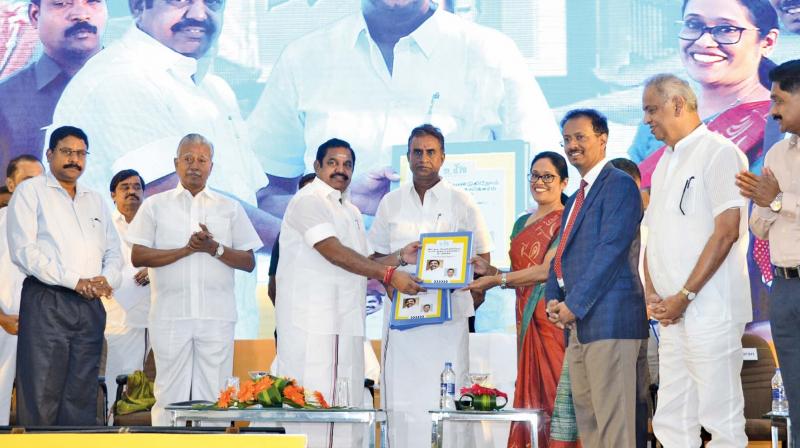Dreams of those who wanted to break AIADMK shattered, says Tamil Nadu CM
Dhinakaran has denied that the verdict was a setback to his camp and termed it an experience.

Coimbatore: Tamil Nadu Chief Minister, Mr Edappadi K Palaniswami has said the dreams of those who tried to break the AIADMK and come to power have been shattered following the Madras High Court verdict upholding the disqualification of 18 MLAs.
Both party founder late M G Ramachandran and former chief minister J Jayalalithaa had launched various welfare schemes for the benefit of the people of Tamil Nadu and worked for their uplift, Palaniswami said at a function in the city Friday. In an apparent reference to the dissident leader T T V Dhinakaran, Palaniswami alleged that after Jayalalithaa's death, “some betr-ayers” joined hands with the DMK to split the party and topple the government, by creating obstacles.
However, with blessings of God and Jayalalithaa, the “enemies” were given the right punishment for the betrayal and attempt to topple the government, he said. “We will work hard to protect the organisation which was nurtured by two great souls,” he added.
Dhinakaran has denied that the verdict was a setback to his camp and termed it an “experience.” The disqualified MLAs have decided to approach the Supreme Court against the high court order. In a huge relief to the AIADMK government, the high court Thursday upheld the disqualification of its 18 rebel MLAs loyal to sidelined leader Dhinakaran by the Speaker. They were disqualified on September 18 last year by Speaker P Dhanapal under the anti-defection law after they met the governor and expressed loss of confidence in Chief Minister K Palaniswami. An adverse judgment could have triggered a political realignment in Tamil Nadu and brought the ruling party perilously close to losing majority in the House with a strength of 232 now. Two seats are vacant.
The disqualified MLAs are loyalists of Dhinakaran, who now heads the Amma Makkal Munnetra Kazhagam, and deposed AIADMK leader V K Sasikala. The opposition DMK has said it was not bothered about which faction of the AIADMK would benefit from the ruling but wanted elections to be held in all the 18 seats that fell vacant following the court order, besides two others.

